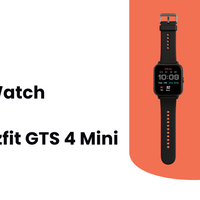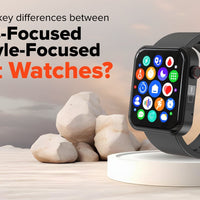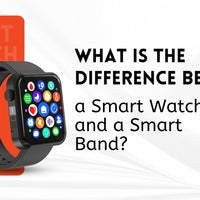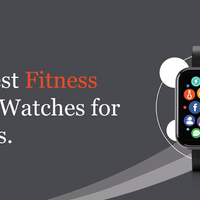Integrating technology in healthcare has led to remarkable advancements in patient care, diagnostics, and treatment. One of the most significant developments is the advent of medical smartwatches, wearable devices that offer a range of health monitoring capabilities. These devices have revolutionized how individuals and healthcare professionals manage health and wellness. This article explores the various aspects of medical smartwatches, their benefits, challenges, and the future of wearable tech in healthcare. Throughout this discussion, we will highlight products from LifeWatch that exemplify these advancements.
The Evolution of Medical Smartwatches

Medical smartwatches have evolved significantly since their inception. Initially designed as fitness trackers, these devices now encompass many health monitoring features, including heart rate tracking, ECG monitoring, blood oxygen levels, and more. Advancements in sensor technology, data analytics, and integration with healthcare systems have driven the transition from simple fitness devices to comprehensive health monitoring tools.
- Early Fitness Trackers
The first generation of fitness trackers primarily focused on tracking physical activity, such as steps taken and calories burned. These devices aimed to encourage a more active lifestyle and provide users with essential health insights.
- Advanced Health Monitoring
Modern medical smartwatches are equipped with sophisticated sensors that monitor various health parameters. These include continuous heart rate monitoring, ECG (electrocardiogram) functionality, blood oxygen saturation (SpO2) measurement, sleep tracking, and stress assessment. The data collected is often analyzed using artificial intelligence (AI) to provide personalized health insights and recommendations.
- Integration with Healthcare Systems
Medical smartwatches can sync data with electronic health records (EHRs) and healthcare apps. This integration allows seamless health data sharing between patients and healthcare providers, facilitating more informed decision-making and personalized care.
Benefits of Medical Smartwatches
Medical smartwatches offer numerous benefits for both individuals and healthcare providers. These devices empower users to take control of their health, provide valuable data for healthcare professionals, and contribute to preventive healthcare.
- Continuous Health Monitoring
One of the primary advantages of medical smartwatches is the ability to monitor health continuously. Unlike periodic check-ups, smartwatches provide real-time data, enabling early detection of potential health issues. Continuous monitoring is particularly beneficial for individuals with chronic conditions, as it allows for timely interventions and adjustments in treatment plans.
- Personalized Health Insights
Medical smartwatches analyze the data collected to provide personalized health insights and recommendations. These insights can include activity levels, heart rate trends, sleep quality, and stress levels. Personalized feedback helps users make informed decisions about their health and lifestyle.
- Enhanced Patient Engagement
Medical smartwatches encourage greater engagement in health management. By providing real-time feedback and actionable insights, these devices motivate users to adopt healthier behaviours, such as increased physical activity, better sleep habits, and stress reduction techniques.
- Remote Patient Monitoring
For healthcare providers, medical smartwatches offer the capability for remote patient monitoring. This is particularly valuable for managing patients with chronic conditions, as it allows for continuous oversight without requiring frequent in-person visits. Remote monitoring can lead to improved patient outcomes and reduced healthcare costs.
LifeWatch is designed to deliver these benefits, empowering users to take charge of their health and providing healthcare professionals with valuable tools for patient care.
Challenges and Considerations
While medical smartwatches offer significant advantages, there are also challenges and considerations to address. These include data privacy, accuracy, and integration with existing healthcare systems.
- Data Privacy and Security
The collection and sharing of health data raise concerns about privacy and security. Manufacturers and healthcare providers must implement robust data protection measures to ensure the confidentiality and integrity of health information.
- Accuracy of Data
The accuracy of health data collected by medical smartwatches is critical for reliable monitoring and decision-making. Manufacturers must ensure their devices meet stringent accuracy standards and undergo rigorous testing.
- Integration with Healthcare Systems
Seamless integration with existing healthcare systems is necessary to use medical smartwatches effectively. This requires compatibility with EHRs, healthcare apps, and other medical devices. Interoperability standards and collaboration between tech companies and healthcare providers are essential for achieving this integration.
- User Adoption and Engagement
The effectiveness of medical smartwatches depends on user adoption and engagement. It is essential to design devices that are user-friendly, comfortable to wear, and provide clear and actionable insights. Educating users on these devices' benefits and proper use is also crucial.
LifeWatch addresses these challenges by prioritizing data privacy, ensuring high accuracy, and offering user-friendly designs that encourage adoption and engagement.
The Future of Medical Smartwatches

The future of medical smartwatches holds exciting possibilities. Advancements in technology, such as improved sensors, AI-driven analytics, and expanded health monitoring capabilities, will continue to enhance the functionality and impact of these devic
- Advanced Health Monitoring
Future medical smartwatches will likely include even more advanced health monitoring features, such as continuous glucose monitoring, hydration tracking, and early disease detection. These advancements will further empower users to manage their health proactively.
- Integration with AI and Machine Learning
Integrating AI and machine learning will enable more sophisticated analysis of health data, providing deeper insights and more accurate predictions. AI-driven analytics can help identify patterns and trends that may indicate health issues, allowing for earlier interventions.
- Personalized Healthcare
As medical smartwatches become more advanced, they will be crucial in personalized healthcare. By providing tailored recommendations and interventions based on individual health data, these devices will contribute to more effective and customized treatment plans.
- Broader Adoption and Accessibility
Efforts to make medical smartwatches more affordable and accessible will drive broader adoption. This will ensure that a more comprehensive population can benefit from the advantages of wearable health technology, contributing to overall public health improvement.
Final Words
Medical smartwatches represent a significant leap forward in healthcare technology. They offer continuous health monitoring, personalized insights, and enhanced patient engagement, making them valuable tools for individuals and healthcare providers. While data privacy and accuracy must be addressed, the future of medical smartwatches holds immense potential for improving health outcomes and revolutionizing healthcare delivery.















